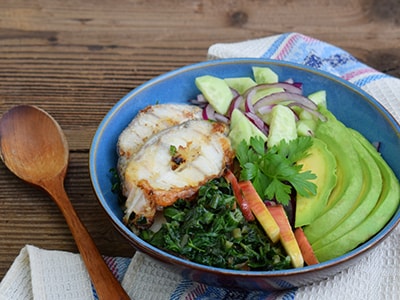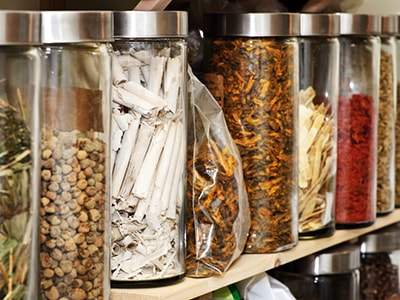
Anti-Inflammatory Diet for Autoimmune Conditions
Autoimmune diseases are disorders caused by the malfunctioning of the immune system. Normally, the immune system’s function is to tackle and flush foreign bodies like germs from the body. An autoimmune disease happens when the immune system attacks healthy cells by mistake instead.
Experts are unsure of the exact cause of autoimmune diseases. But it can affect many types of cells, tissues, and organs in the body. Currently, more than a hundred distinct autoimmune illnesses have been identified by researchers. Multiple sclerosis, Crohn’s disease, Graves’ disease, Hashimoto’s thyroiditis, type 1 diabetes, psoriasis, lupus, endometriosis, Addison’s disease, celiac disease, Kawasaki disease, interstitial cystitis, and vitiligo are examples of common autoimmune disorders.
When the immune system fails to recognize between intruders and healthy cells, the body’s defense against pathogens and cancer cells weakens. It makes the person prone to debilitating diseases not easily treated by medications. Depending on the affected organ, autoimmune diseases manifest different symptoms and their treatment also varies. Inflammation is the most common, resulting in pain, stiffness, and swelling of the affected organs.
According to researchers, the most probable reasons for developing autoimmune conditions are lifestyle choices, diet, drugs and infections. Genetics is also a factor in the development of the disease. Since most of the immune system is located in the gastrointestinal tract, dietary changes play a greater role in managing autoimmune diseases.
Diet Plans for Autoimmune Diseases
Over the years, dieticians and nutritionists have been working on specific dietary changes to handle autoimmune symptoms better. Removing allergens and food triggers and incorporating healthy food options may help alleviate its symptoms. These are tailored to the specific needs of a person in controlled and properly managed diet plans. Below, I will briefly discuss some common diets for autoimmune diseases.
Autoimmune Protocol Diet (AIP)
AIP diet is the strict version of the Paleo diet which restricts a variety of common trigger foods. These trigger foods are what worsen inflammation in autoimmune diseases. AIP diet eliminates gluten, dairy, legumes, beans, grains, nuts, eggs, sugars, and seed spices in the first phase. Tomatoes, peppers, and potatoes are also not on the list of AIP.
After 2 to 3 weeks, these foods are gradually reintroduced to see whether the symptoms arise. Foods that trigger symptoms are eliminated and those that don’t remain included in the diet.
AIP diet is very restrictive and is not considered the best option for beginners.
Anti-Inflammatory Diet
The anti-inflammatory diet focuses on healthy servings of fruit, vegetables and omega-3 fatty acids. While the diet is not very restrictive, it eliminates potential food that causes inflammation. So, sugary and processed foods are out. Frying food in cooking oil is restricted since it is a source of free radicals that increases the susceptibility of inflammation.
This diet is similar to the popular Mediterranean diet and the DASH diet. The meal plan combines a variety of colorful, simple, fresh, and natural ingredients. Experts believe that managing inflammation contributes to the improvement of autoimmune and other metabolic diseases.
Plant-Based Diet
As the name implies, a plant-based diet is eating food sourced mostly from plants. However, it does not restrict meat in the diet, but rather proportionately chooses more food from plant sources. So speaking, a plant-based diet does not necessarily mean you are going vegan or vegetarian.
Vegetables are considered the base in plant-based diets and meats are used in smaller amounts. Whole grains and good fats are incorporated into the meals as well as vegetable salads and fruit for dessert. The food is often cooked to make it tolerable for individuals with autoimmune diseases, as the molecules are broken down.
Gluten-Free Diet
This diet plan is best for autoimmune diseases that concern gluten allergies, like celiac disease. The proteins in wheat, rye and barley irritate the small intestine and trigger an immune response. Eliminating gluten helps prevent gut inflammation and other inflammatory symptoms.
The diet is designed not only for the benefit of people with celiac disease but also for other types of autoimmune conditions. By suppressing the inflammatory cells, a gluten-free diet can help improve gastrointestinal health. It reduces the possibility of gut leakage and eventually improves the overall health condition.
You can read detailed information about the best diets to follow for autoimmune issues at page 7 in Dr. Nicole Apelian’s latest book, The Holistic Guide to Wellness: Herbal Protocols for Common Ailments.
Best Foods for Autoimmune Diseases
Consuming nutrient-dense foods is essential in coping with autoimmune issues. However, not all healthy foods do well when the immune system is malfunctioning. Gluten, for example, can trigger an immune response in many individuals. To reduce inflammation and avoid the flare-up of other symptoms, the following foods and herbs may help.
Antioxidant Foods
The antioxidants found in foods are important for overall health. They help neutralize free radicals that attack the cells in the body. Consuming food rich in antioxidants decreases the symptoms of autoimmune diseases and protects the cells from further damage.
Plant products are rich in antioxidants, so increase your intake of fresh fruits and vegetables. Foods with bright colors are the best indicator of the presence of antioxidants. Thus, the best sources are:
- Green leafy vegetables
- Berries (raspberries, blueberries, etc.)
- Apples
- Broccoli and other cruciferous plants
- Legumes
- Eggplant
- Herbal teas (green tea and black tea)
If you are suffering from an autoimmune disease, load up on a variety of these products. Make your plate more appetizing in an array of colors to get the most of your needed antioxidants.
Whole Foods
Whole foods, or foods that are not processed, help in lowering inflammation in the body. Unprocessed foods contain fiber that promotes the healing of the gut. They are also low in fat, sugar and salt, which are often added to processed foods.
Fruits, vegetables, beans, eggs and non-processed meat and poultry make up healthy whole foods. Plant-based whole food is often more helpful in reducing autoimmune symptoms.
Patients with a gluten allergy can include some grains and starches in their gluten-free diet. It includes arrowroot, buckwheat, corn, flax, quinoa, millet, wild rice, and sorghum. Oats and oat products that are labeled gluten-free are also good sources of nutrition.
Omega-3 Fatty Acids
Omega-3 fatty acids are found in some fishes, seeds, plant oils and fish oil dietary supplements. It is composed of alpha linolenic acid (ALA), eicosapentaenoic acid (EPA) and docosahexaenoic acid (DHA). These essential fatty acids are not naturally produced in the body and they only come from food sources.
Eating foods rich in omega-3s boosts the body’s functions and decreases inflammation. It also helps balance the function of the immune system and lowers its ability to attack healthy cells. Getting enough omega-3s lessens the need for pain medication in autoimmune diseases.
Other food sources of these fatty acids are:
- Plant oil (olive oil, avocado, flaxseed)
- Nuts and seeds (chia, flax, walnuts)
- Cold water fatty fishes (salmon, mackerel, herring, tuna, sardines)
- Dietary supplements (algal oil, cod liver oil, fish oil)
Beyond a suitable nutrition, the herbal tinctures in Dr. Nicole’s Warrior Bundle are valuable for keeping the symptoms of fatigue, brain fog, and muscle weakness in remission. These tinctures are helpful for autoimmune diseases, alongside an appropriate diet. The bundle, which includes tinctures of Lion’s Mane, Reishi, and Turkey Tail medicinal mushrooms, plus a Balanced/Leaky Gut Tincture, Elderberry Tincture, All-Purpose (First Aid) Salve, and Usnea Spray, can be found in the Apothecary.
Best Herbs for Autoimmune Diseases
Herbs are a traditional treatment used against a wide range of diseases since ancient times. Several of them contain anti-inflammatory properties that are excellent against autoimmune diseases. They are called immune-modulating herbs.
Immune-modulating herbs work by stimulating the T-suppressor cells and reducing immune resistance. They also enhance the production of antibodies and act as antigens. The tonic and adaptogenic herbs beneficial against autoimmune diseases are:
- Ashwagandha (Withania somnifera)
- Astragalus (Astragalus membranaceus)
- Echinacea (Echinacea sp.)
 Reishi mushroom (Ganoderma lucidum)
Reishi mushroom (Ganoderma lucidum)- Shiitake mushroom (Lentinus edodes)
- Schizandra (Schisandra chinensis)
- Garlic (Allium sativum)
- Ginseng (Panax ginseng)
- Licorice (Glycyrrhiza glabra)
- Hops (Humulus lupus)
- Green tea (Camellia sinensis)
- Turmeric (Curcuma longa)
- Ginger (Zingeber officinale)
Takeaway
These herbs are likely safe for consumption in individuals with autoimmune diseases. However, one must be wary if they are allergic to a certain plant family. It may only worsen the inflammation and autoimmune symptoms.
Herbal supplements must be taken upon the advice of a qualified healthcare professional. Autoimmune diseases are a serious condition that can cause further organ damage and turn life-threatening if not handled properly.
When taking medications for a certain condition, do not take herbs without consulting your doctor. Herbal remedies may be safe but they are also potent and can interfere with other medications. The best way to manage autoimmune diseases is to focus on a healthy and well-tolerated diet. Avoiding foods that cause intestinal irritation can do so much good in improving the condition.







 Reishi mushroom (Ganoderma lucidum)
Reishi mushroom (Ganoderma lucidum)
Like many of your articles, I find this information enlightening; however, I don’t have any of the herbs readily available to make some of the remedies mentioned in other articles. I live in southeast michigan and would like a recommendation to a local store that may have these herbs on hand and ready for use.
Please respond……
You could search the Internet to see if there’s a store in your area or order organic herbs from Starwest Botanicals or Mountain Rose herbs as well.. These companies specify the origins of the herbs.
Mountain Rose Herbs is a great company. Online ordering is easy and all herbs spices are organic.
Hi I will be launching my web store by 2024 offering all the medicinal herbs and mixtures of these herbs that I have created and used successfully to treat myself, family and friends for many different ailments. Also I will have organic spices and offer custom mixtures of teas that can be loose leaf or in all natural disposable or reusable tea bags, custom blends of spices will also be offered. The website is elksongorganics.com hoping it will be finished and accessible by December. There will also be an extensive amount of information available as well as an entertaining blog following our adventures on the 9.5 acre funny farm 😊 somehow I end up with all the goofy silly animals (and people) lol
Terri
Your information is very valuable generally speaking but what must be consider the problematic toxic superfoods such that contain oxalic acid (oxalates). I have been eating sweet potatoes, spinach, drinking celery juice, and I developed fibromyalgia. These foods and others are very damaging as I discover for myself.
Hi Maria,
We’re sorry to hear this and we thank you for sharing your personal experience with us.
Eating a variety of foods in moderate amounts is indicated in general.
You might be interested in our article below:
https://thelostherbs.com/7-natural-remedies-for-fibromyalgia-pain/
Many blessings and good health!
Great Article, and one suggestion for you! In the oils section, Canola is not healthy and was proven that over a decade ago. You might want to add Sunflower oil and Avocado oil to that list.
Kind Regards, Charlotte
So much good information thank you, but why is it so many businesses don’t include the fact that corn is 53% gluten and is continuing to keep celiac people sick?